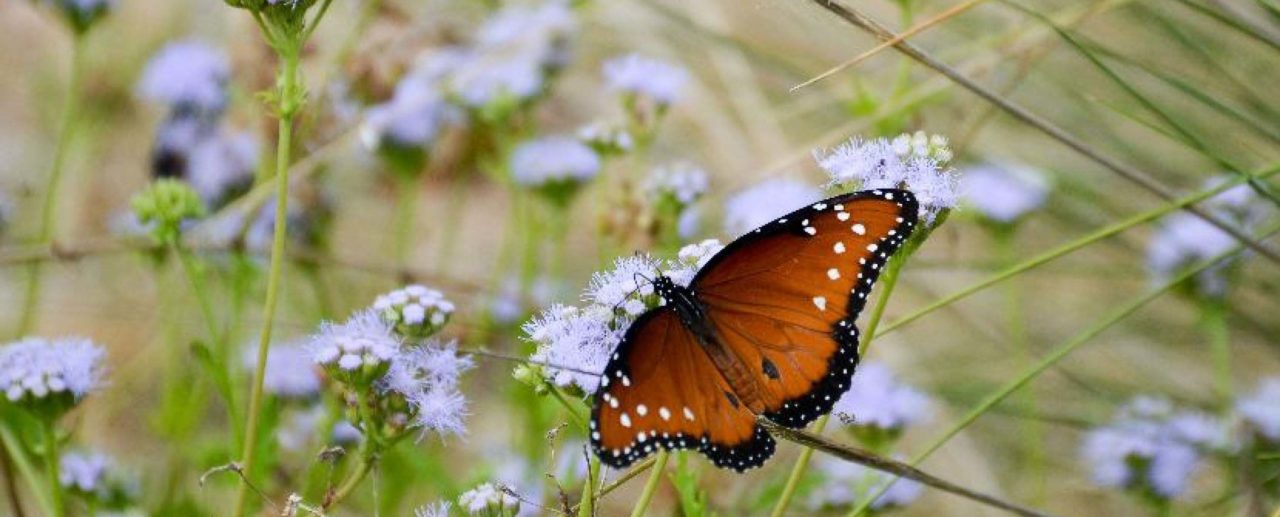Ah, springtime in the northeast. Finally. The trees are budding, birds are chirping, the air is crisp and sweet—and if you’re lucky, you’ll see a buzzing little bee flitting about in all the fresh bloomage.
For bees, it’s officially the start of their busy season—time to pollinate. Bees are invaluable to local plant life—one bee alone can pollinate up to 5,000 flowers in a single day! But no thanks to climate change, pesticide use, and habitat loss, bee populations are in sharp decline. And that’s a serious problem…

Why Bees Matter
Bees are the most prolific pollinators on the planet. Around 90 percent of wild plant species rely on some form of external pollination for survival. So what would happen if we were to allow bees to die out? Not only would our planet become a lot less green and beautiful, but many animal species would suffer, losing access to precious habitat and food sources. And humans are no exception.
Our global food system rests on the delicate shoulders of our pollinators. Many of the agricultural crops we know and love come to us courtesy of their hard work. Without bees, we’d lose good foods like berries, almonds, avocados, cauliflower, cashews, coconuts, lemons, Brussels sprouts, and broccoli. Even foods like chocolate and coffee would disappear, or become much more rare and expensive—as if your morning latte doesn’t cost enough already!
When you crunch the numbers, bees pollinate one-third of all the food on our plates. That’s right, over 30 percent of crops in the world are reliant on bees’ hard work. They are a keystone to our ecosystem, which is why it’s important to take the health of local bees into consideration when landscaping around your home.

Creating a pollinator-friendly garden.
The best way to ensure that your local pollinators stay healthy is to provide them with clean, abundant foraging grounds. That’s why it’s a great idea to plant your own pollinator garden.
The ideal garden would be full of organic, nectarful blooms from early spring throughout the fall, serving as a three-season oasis for bees. The goal is for something to always be in bloom so that pollinators can enjoy reliable access to clean, safe food.
Yet another way to support pollinators is to consider replacing your lawn with specially curated meadows. Meadow lawns enhance the health and beauty of your landscape while providing lots of clean foraging grounds. (Bonus: they also cut back on lawn maintenance time and costs!)
Nature Works cares deeply about the health of bees, and we would love to help you make your garden or lawn more pollinator-friendly! We work with the ecosystem—not against it—to create landscapes that are beautiful, functional, and sustainable.* We’re here for you!
(*Seriously, bees can’t stop buzzing about our work!)

Say ‘no’ to pesticides.
Whatever you decide to plant, the most important thing to remember when taking care of your property is to avoid spraying pesticides. These chemicals aren’t just known hormonal disruptors; they are one of the main reasons why bees are in serious decline.
That’s why organic home gardening is so important—even in choosing the seeds you use. Some conventional seeds come coated in nasty pesticides, like neonicotinoids. Neonics, as they’re otherwise known, are the most widely used insecticide in the world—and are one of the most toxic chemicals to pollinators.

Unlike other pesticides, neonics work systemically, so they get absorbed into the body of a plant when applied. That means when bees come bumbling by, the pollen and nectar they rely on is tainted with poison. Very small quantities of neonics are enough to attack bees’ central nervous systems and utterly decimate hives. Even worse, these chemicals persist in the soil long after they’re applied, presenting a very serious long term threat to local bee populations—and local ecosystems.
The point is, don’t spray your lawn or garden with pesticides. There are other, safer ways to deter pests while embracing pollinators. Remember, bees are a benefit to your garden, your local environment, and your local agriculture. If you want some support in creating a more beautiful, pollinator-friendly yard, just give us a call. We’re here to help!


